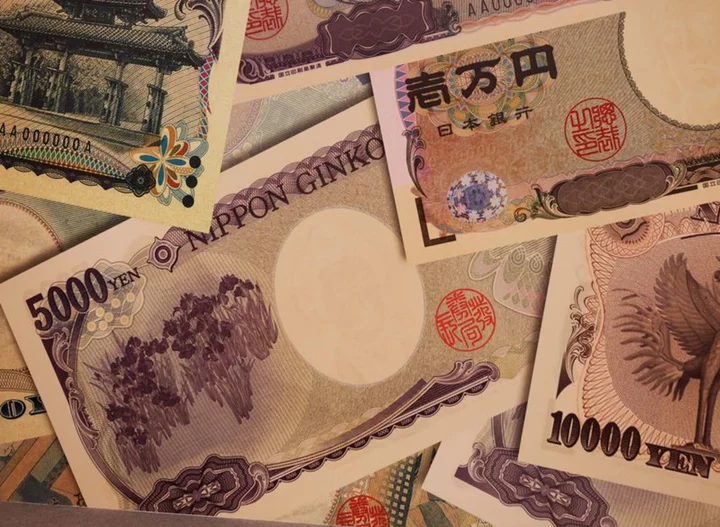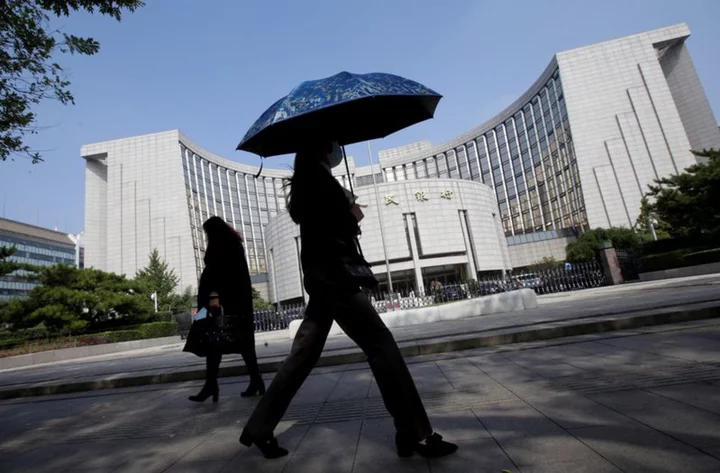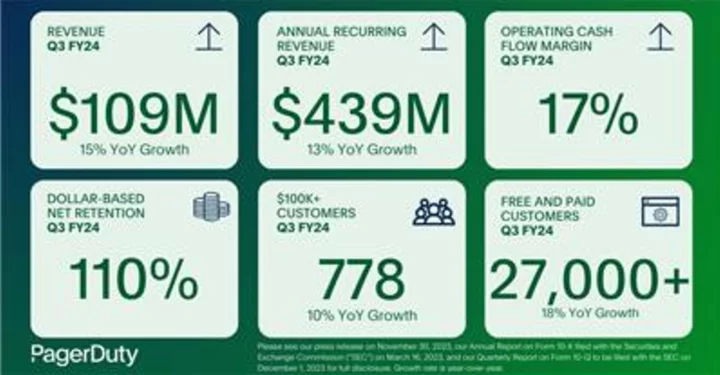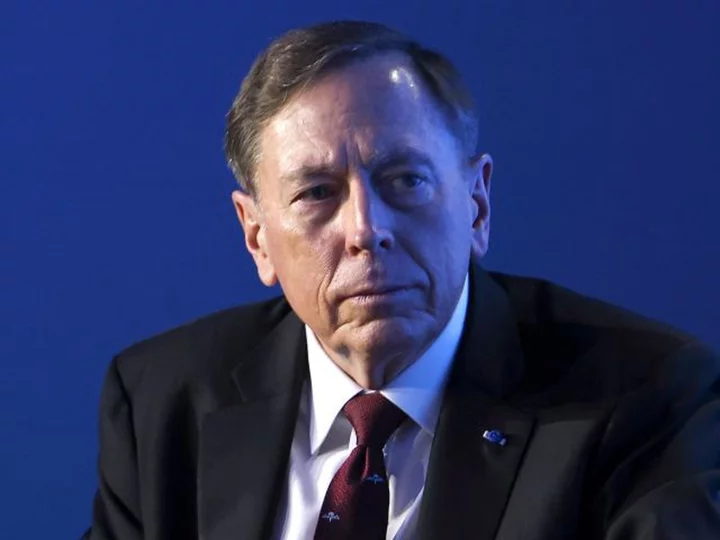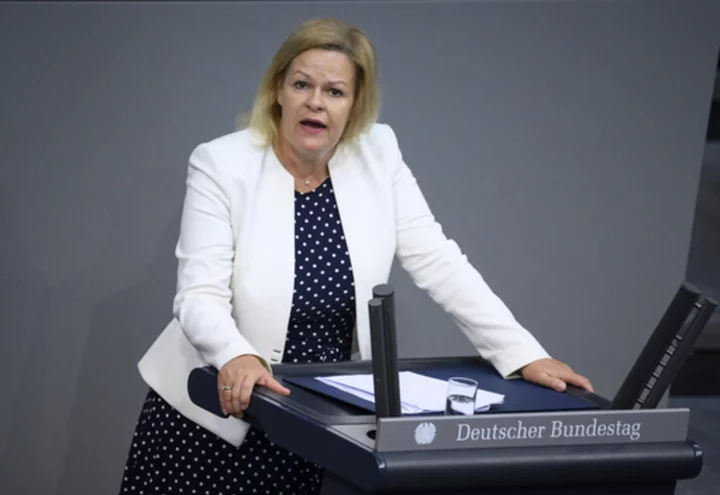By Tetsushi Kajimoto and Leika Kihara
TOKYO The slow pace of the yen's recent fall makes imminent market intervention by Japanese authorities less likely than a year ago, when they last stepped in to prop up the currency, former top currency diplomat Hiroshi Watanabe said on Tuesday.
Japan bought yen in September last year, its first foray in the market to boost its currency since 1998, after a Bank of Japan decision to maintain an ultra-loose monetary policy drove the yen as low as 145 per dollar. It intervened again in October after the yen plunged to a 32-year low of 151.94.
Delaers are now on high alert for another round of intervention, as prospects of higher-for-longer U.S. interest rates push the dollar near the 150-yen level that some market watchers see as Tokyo's line-in-the-sand. The U.S. unit stood at 149.83 yen on Tuesday.
But Watanabe, who oversaw Japan's currency policy from 2004 to 2007, said the chance of renewed currency intervention by Tokyo was slim for now.
"Last year's currency intervention was aimed at giving markets a warning shot," and reflected authorities' concern that if they left dollar/yen moves unattended, the pair could shoot up to 155 or 160, Watanabe told Reuters in an interview.
"I don't think authorities are worried about the outlook as much as they were last year," after seeing the dollar move in a range of 145-150 yen for the past year, he said.
"There's no sense of imminence because the dollar/yen level hasn't changed much from a year ago, and it doesn't seem like the yen will start to plunge even if it breaches the 150 mark."
The dollar also likely won't rise much further as the U.S. Federal Reserve's rate hike cycle is nearing an end, said Watanabe, who retains contact with incumbent policymakers.
"If there are big moves in the currency, authorities need to step in to smooth fluctuations. But they won't intervene to target a certain yen level," said Watanabe, who is now the president of Institute for International Monetary Affairs.
"When the yen moves are gradual, as is the case now, intervention won't have much effect in reversing the tide."
While a weak yen gives Japanese exports a boost, it is now seen as problematic due to the economy's heavy reliance on imports for goods ranging from fuel, food and raw material.
Rising import costs have kept inflation above the BOJ's 2% target for more than a year, piling pressure on the central bank to pull short-term interest rates out of negative territory and abandon a 0% cap set for the 10-year government bond yield.
Watanabe said the BOJ should end negative rates and the bond yield cap simultaneously, as it was already behind-the-curve in responding to rising inflation.
With U.S. and European central banks likely to hold off on cutting interest rates next year, BOJ Governor Kazuo Ueda can phase out its massive stimulus without worrying about the risk of causing a disruptive yen rebound, Watanabe said.
"Markets are giving Ueda a free hand" he said. "There's scope for the BOJ to end what has become an abnormal policy."
(Reporting by Tetsushi Kajimoto and Leika Kihara, Additional reporting by Yoshifumi Takemoto; Editing by Simon Cameron-Moore)

